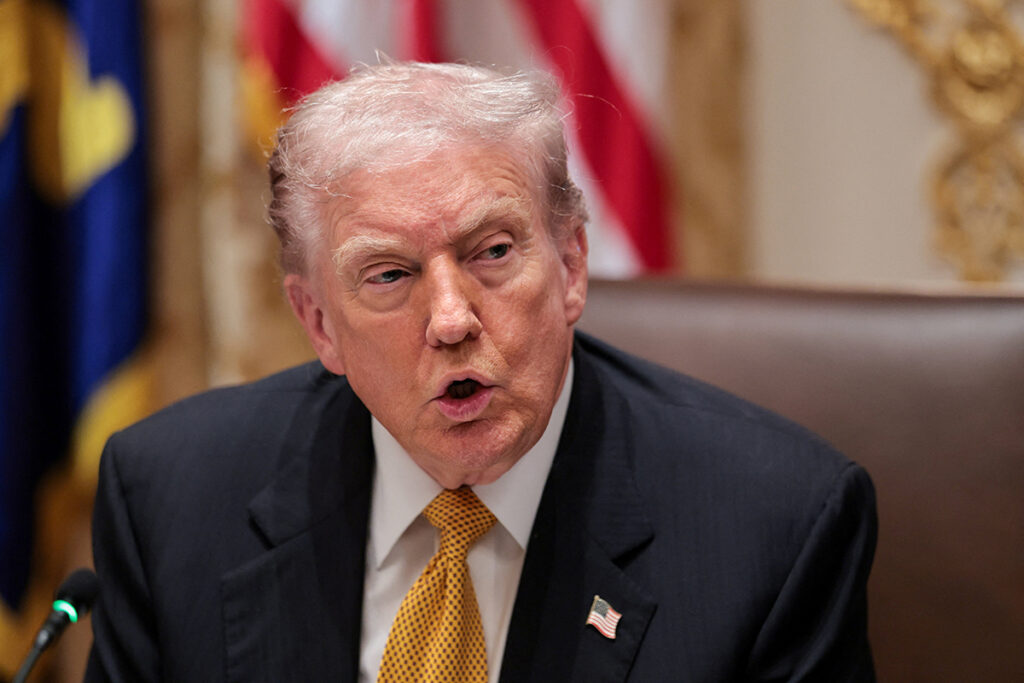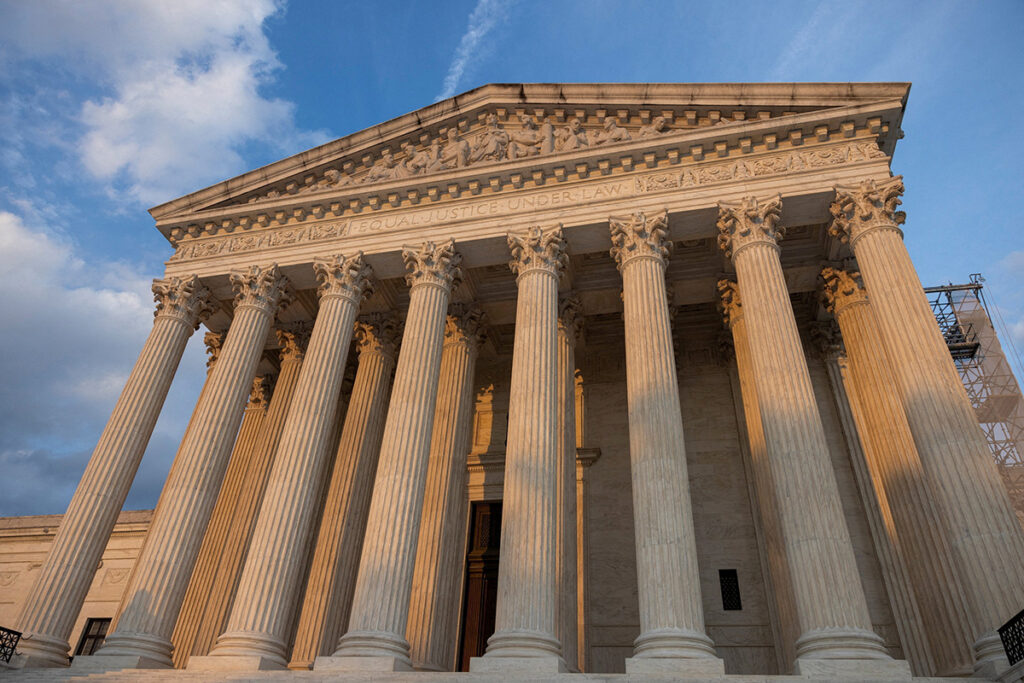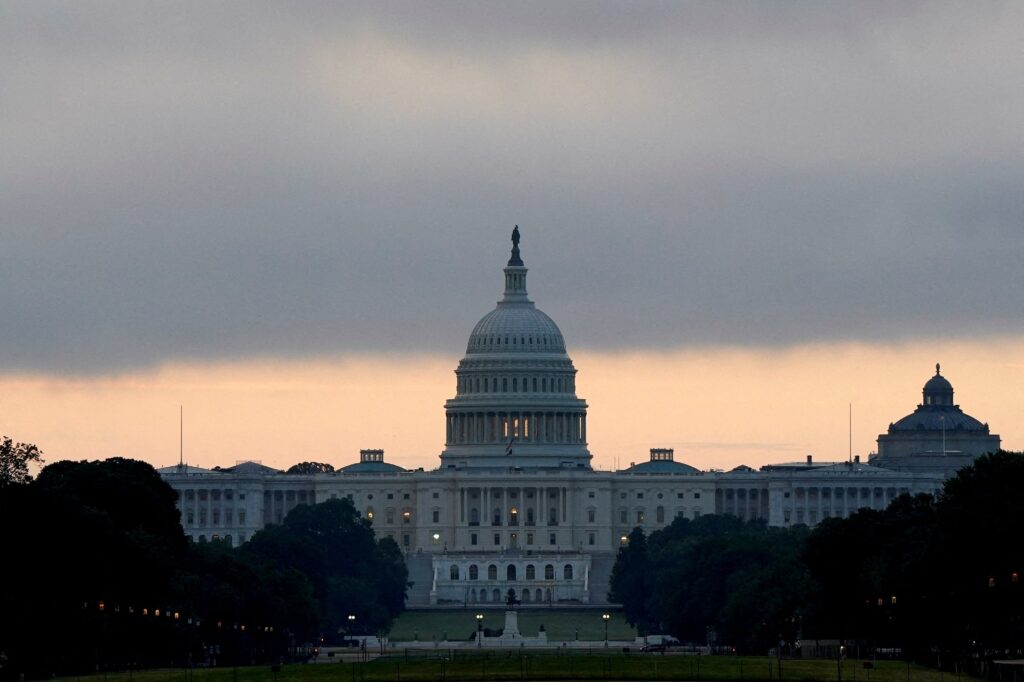WASHINGTON (OSV News) — President Donald Trump and Republicans grappled with election losses in key off-year contests Nov. 4 as the federal government shutdown became the longest in history.
The same week in Washington, the federal government shutdown led to reductions in air travel shortly before Thanksgiving, the U.S. Supreme Court allowed the Trump administration to implement its requirement that passports identify individuals by their biological sex at birth, and the U.S. Senate voted down a measure requiring Trump to get approval from Congress for military operations against Venezuela.
Economy drives high-profile election results
Closely watched off-year elections in states including Virginia and New Jersey offered the first major opportunity for voters to weigh in at the ballot box since Trump began his second term. They resulted in key victories for Democratic candidates and showed signs voters were motivated by cost-of-living increases, an area of Catholic social concern.
“I don’t think it was good for Republicans,” Trump said of the outcomes at a Nov. 5 meeting with Republican senators at the White House.
Democrats won gubernatorial races in New Jersey and Virginia. In New York City, Zohran Mamdani, a Democratic socialist who won his party’s nomination for mayor, defeated Republican Curtis Sliwa and an independent campaign by the scandal-plagued and former Democratic Gov. Andrew Cuomo, who is also a Catholic and was responsible for spearheading New York State’s largest expansion of legal abortion while governor.
According to CBS News exit polling, cost-of-living was high on voters’ priority lists. Majorities of voters in Virginia and New Jersey said Trump was a key factor in their votes, although he was not on the ballot. Voters in those contests who said the economy was their first concern voted for the Democratic gubernatorial candidates. The exit polling also found cost of living was the most important issue to voters in New York City, with most of those voters supporting Mamdani.

After the results, Trump reiterated his push for the Senate to end its filibuster rule in what he cast as an effort to end the federal government shutdown. The rule requires a 60-vote threshold for most legislation.
Although Republicans control both chambers of Congress, their majorities are slim. They can afford to lose just a few of their members in the House without any Democratic support, and generally must garner some Democratic support in the Senate to pass legislation in the upper chamber. Although some Senate Republicans made statements open to making the change, others, including Senate Majority Leader John Thune, R-S.D., said their support for the rule remained unchanged.
Federal government shutdown impacts air travel as bishops’ meeting nears
More than 1,000 flights were cancelled as of Nov. 7 as the Department of Transportation implemented reductions in air traffic at major airports, citing safety concerns amid the shutdown.
Transportation Secretary Sean Duffy and FAA Administrator Bryan Bedford issued a directive that 10% of flights at 40 “high-impact” airports throughout the country be cut. Airlines were expected to cut at least 4% of flights as of Nov. 7, and to increase to 10% cut the following week.
During a government shutdown, some types of essential government services are exempt, including Social Security payments to older adults, but many other functions of government are suspended. Hundreds of thousands of federal workers are subject to furloughs, meaning they must stop working and will not be paid until the federal government reopens.
Subsequent staffing issues presented by the shutdown were among the safety concerns officials cited when announcing the cuts to air traffic.
The U.S. Catholic bishops are scheduled to meet for their conference’s annual fall plenary assembly in Baltimore Nov. 10-13. It is not yet clear how the air traffic cuts may affect bishops’ participation and the proceedings.

Supreme Court allows Trump administration to implement transgender passport policy
The Supreme Court on Nov. 6 allowed the Trump administration to implement a policy requiring the sex designation on U.S. passports to align with the biological sex of the passport holder.
U.S. passports first had sex designations in 1976, but in 1992, the State Department implemented a policy allowing U.S. citizens to choose a designation opposite to their biological sex if they provided medical documentation of having undergone a surgical procedure. In 2021, President Joe Biden’s administration added to that policy by allowing individuals to select “X” as their designation in what it described as an effort to be inclusive to Americans who are intersex or identify as nonbinary.
Among the first executive orders signed by Trump upon his return to the White House in January was one directing the U.S. government to only recognize two sexes, male and female, such as in government-issued identification documents, “including passports, visas, and Global Entry cards, accurately reflect the holder’s sex.”
The subsequent policy issued in response to the order was previously blocked by a lower court. But in its order, a majority of the Supreme Court overturned that ruling, finding the Trump administration “likely to succeed on the merits.”
“Displaying passport holders’ sex at birth no more offends equal protection principles than displaying their country of birth — in both cases, the Government is merely attesting to a historical fact without subjecting anyone to differential treatment,” the order said.
In a dissent, Justice Ketanji Brown Jackson, joined by Justices Sonia Sotomayor and Elena Kagan, argued against the order, saying the State Department sought to “upend 33 years of settled practice.”
“Such senseless sidestepping of the obvious equitable outcome has become an unfortunate pattern,” Jackson wrote, arguing that individuals who appear to be a different gender than what is written on their travel documents could face harassment or other harm.

In guidance on health care policy and practices released in March 2023, the U.S. Conference of Catholic Bishops’ Committee on Doctrine stated the church’s opposition to interventions that “involve the use of surgical or chemical techniques that aim to exchange the sex characteristics of a patient’s body for those of the opposite sex or for simulations thereof.”
“Any technological intervention that does not accord with the fundamental order of the human person as a unity of body and soul, including the sexual difference inscribed in the body, ultimately does not help but, rather, harms the human person,” the document states.
During the upcoming fall plenary assembly, the U.S. Conference of Catholic Bishops will consider possible revisions to its “Ethical and Religious Directives for Catholic Health Care Services” and discuss how to incorporate the 2023 guidance in its new ERD document.
Senate Republicans prevent effort to block Venezuela land strikes
The U.S. Senate on Nov. 6 rejected a measure requiring congressional approval for any military action by Trump against Venezuela.
The resolution — which only required a simple majority to pass — failed in a 49-51 vote. Two Republicans — Sens. Lisa Murkowski of Alaska and Rand Paul of Kentucky — broke with their party to join all 47 Democrats to support the measure.
“Tonight, I voted to proceed to debate on a resolution that would terminate the escalation of operations — covert, military, economic, or otherwise — against Venezuela without explicit approval from Congress,” Murkowski said in a Nov. 6 statement. “I have been briefed multiple times and reviewed classified documents that provide insight into the administration’s factual justification for these actions. Even with this additional context, I do not believe their case has met the standard of clarity and rigor that Congress needs to fully evaluate the legality and scope of these operations.”
“This resolution follows recent reports of U.S. intelligence and military operations in and around Venezuela, which have the potential to disrupt international norms and escalate tensions in the region,” she added. “After months of lethal strikes in international waters, bringing this resolution to the Senate floor would have allowed Congress to determine whether these actions warrant specific congressional authorization under Article I of the Constitution.”
Just hours after the vote, Secretary of Defense Pete Hegseth — who uses the moniker “secretary of war” since Trump signed an executive order on Sept. 5 adding the “Department of War” as a secondary, ceremonial title for the Department of Defense — announced another strike on an alleged drug boat in the Caribbean.
The strike marks at least the 17th such strike in the region, with at least 69 people dead.

The strikes have prompted concern from some including Catholics concerned about improper use of force.
The Catechism of the Catholic Church states legitimate authorities are entrusted with preserving the common good by “rendering the unjust aggressor unable to inflict harm,” and toward that end they “have the right to repel by armed force aggressors against the civil community entrusted to their charge.”
The church’s doctrine also stipulates that legitimate defense by military force is only morally permissible under strict conditions that are all present at one and the same time: the “lasting, grave and certain” damage from the aggressor, the exhaustion of all other efforts to end such damage, “serious prospects of success,” and the use of arms such that graver evils and disorders are not produced.
Kate Scanlon is a national reporter for OSV News covering Washington. Follow her on X @kgscanlon.
The post Washington Roundup: Election shifts; Venezuela vote; transgender passports, and more first appeared on OSV News.




